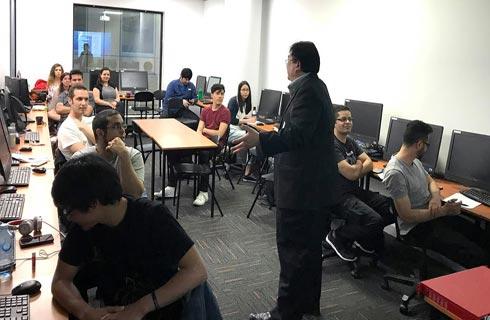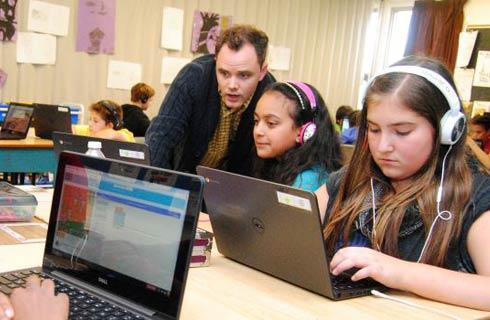分子生物技术理学硕士
MSc Molecular Biotechnology

学历文凭
Masters Degree (Taught)

专业院系
School of Biosciences

开学时间

课程时长

课程学费

国际学生入学条件
Students should hold a 2:2 Honours degree in a Biosciences subject, ideally including some molecular biology (such as gene cloning) and genetics as part of their first degree.
Ask ChatGPTIDP—雅思考试联合主办方

雅思考试总分
6.0
- 雅思总分:6
- 托福网考总分:80
- 托福笔试总分:160
- 其他语言考试:You will need to demonstrate you have a suitable level of English proficiency, usually through the form of an IELTS or equivalent qualification or a Presessional English course. For this course we require IELTS 6.0 with no less than 5.5 in any band, which is equivalent to: TOEFL: 80 overall with no less than 19 in Reading, 19 Listening, 21 Speaking and 19 in Writing, Pearson Test of English (PTE): Academic 64 with no less than 59 in all four skills, Cambridge English: C1 Advanced - minimum overall score of 169, with no less than 162 in any component, LanguageCert ESOL SELT (UKVI): B2 'Communicator' with no less than 25 in each skill.
CRICOS代码:
申请截止日期: 请与IDP联系 以获取详细信息。
课程简介
This course is aimed at those who want to improve the world through biotechnology, this course will equip you with the skills and specialised knowledge needed to embark on your career in this exciting and fast-moving area of bioscience. Make a global impact. You'll gain transferable skills such as presentation, statistics, and business plan writing to set you up for success alongside subject-specific expertise in molecular biotechnology techniques and practical skills. Molecular biotechnology is a broad field that offers a variety of assignments and an overview of topics within biotechnology, so you are not committed to one specific area creating more opportunities for your future. Learn from individuals who are undertaking research in the topics they teach, creating a very active research-led teaching component to this MSc. Gain a thorough understanding to be able to analyse biotechnological problems and execute solutions. Undertake lab-based research projects Study at one of the UK's top Schools of Biosciences Research-led teaching from experts in the field
相关申请
 预科
预科 奖学金
奖学金 实习机会
实习机会 在校学习
在校学习 跨境学习
跨境学习 校园授课-线上开始
校园授课-线上开始 在线/远程学习
在线/远程学习
开学时间&学费
学费信息仅供参考,请与IDP联系以获取详细信息
| 开学时间 | 时长 | 学费 | 地点 |
|---|
学校排名

世界排名116
数据源:
泰晤士高等教育世界大学排名
关于伯明翰大学

伯明翰大学邀请勇敢、独立的思想家加入英国最大的学生社区之一。这里有来自150个国家/地区的1万多名学生。伯明翰大学是世界顶尖大学之一,其成就包括: QS世界大学排名位列第84名 (英国第14名)。 《金融时报》和《经济学人》商学院世界排名前100 著名的罗素大学集团成员 21世纪大学的创始成员该大学以其开创性的研究闻名于世。学生们从影响当地和国际社会的开创性发现中受益。每个人在伯明翰大学都能找到适合自己的专业。学习选择包括本科学位、研究生授课学位和研究生研究学位。学科领域广泛,涵盖从国际发展和政治到心理健康护理。伯明翰市伯明翰市是一个多元化、充满活力的宜居之地,是英国最大的城市之一,也是欧洲最年轻的城市,25岁以下的人口几乎占城市人口的40%。这座现代化城市的中心地带有历史悠久的文化遗产,还有大量世界一流的购物中心和夜生活区以及众多博物馆、剧院和公园,学生可以去游览参观。伯明翰是一座具有多元文化的城市,拥有成百上千座清真寺、教堂、寺庙和犹太会堂,对各种信仰的人们都秉持热情友好的态度。伯明翰市交通便利,学生只需两个小时就可以到达伦敦或快速去往周边乡村。伯明翰国际机场连接到世界各地的目的地。
本校相关课程
其他相关课程

生物技术硕士
 昆士兰大学
昆士兰大学泰晤士高等教育世界大学排名:80
学历文凭
Masters Degree (Coursework)
开学日期
课程费用总额


理学学士(荣誉学位)
 迪肯大学
迪肯大学泰晤士高等教育世界大学排名:206
学历文凭
Bachelor Degree with Honours
开学日期
课程费用总额


理学硕士(研究)-应用研究
 南昆士兰大学
南昆士兰大学学历文凭
Masters Degree (Research)
开学日期
课程费用总额


生物技术硕士
 墨尔本大学
墨尔本大学学历文凭
Masters Degree (Coursework)
开学日期
课程费用总额


应用科学副学士
 皇家墨尔本理工大学
皇家墨尔本理工大学学历文凭
Associate Degree
开学日期
课程费用总额


理学学士(纳米技术)
 弗林德斯大学
弗林德斯大学泰晤士高等教育世界大学排名:307
学历文凭
Bachelor Degree
开学日期
课程费用总额










 英国
英国





